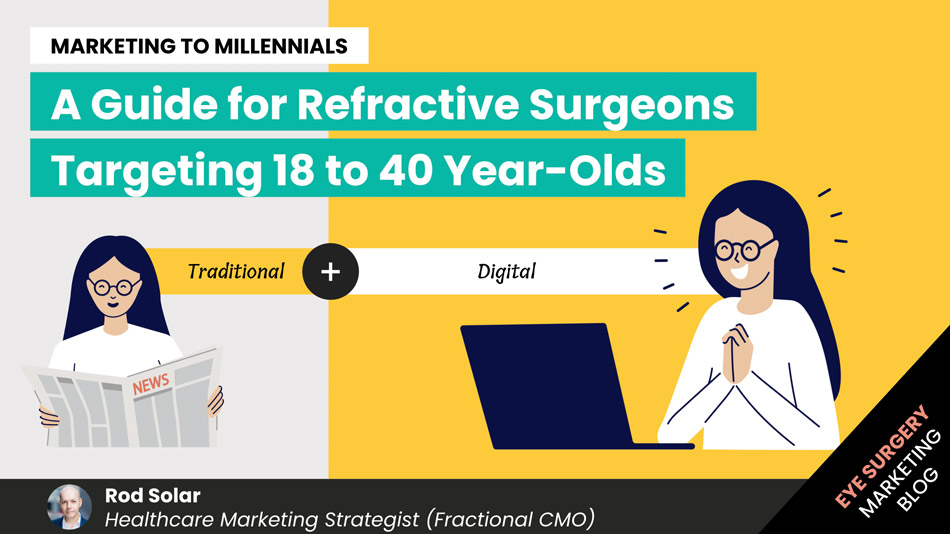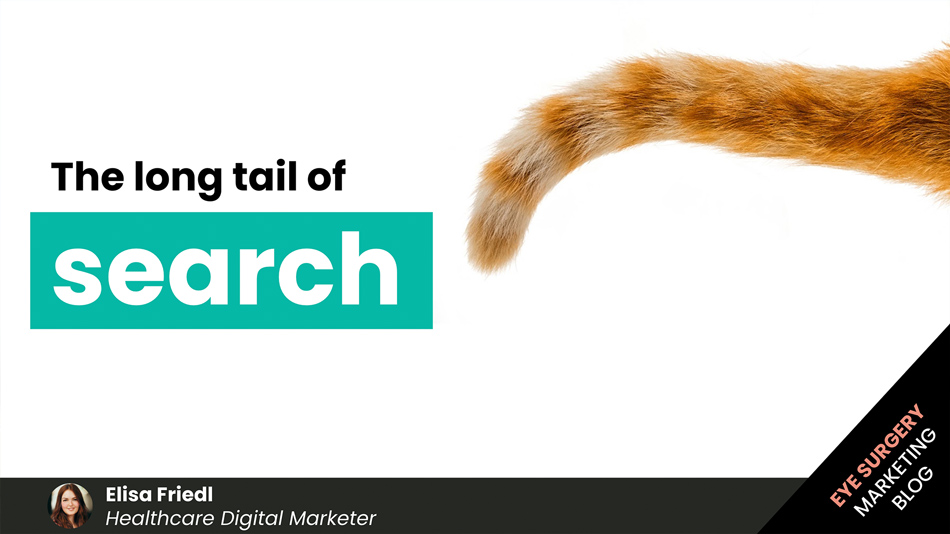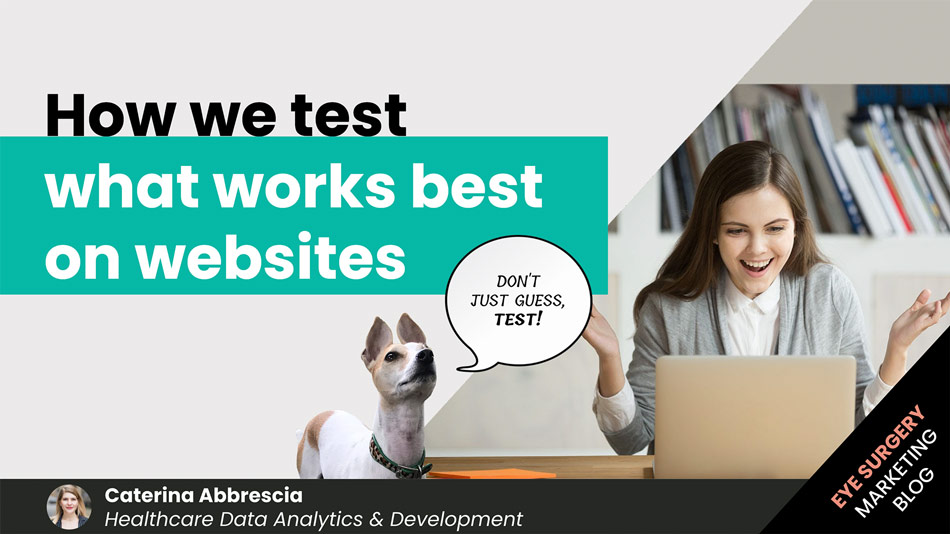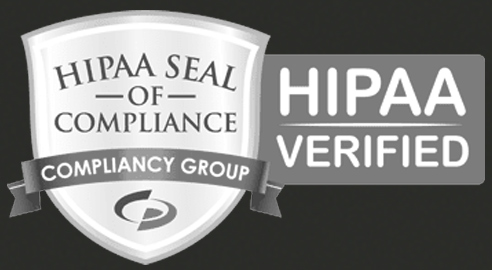
Is that paid online healthcare directory listing worth the money?
Remember the Yellow Pages? When was the last time you used one? It’s been over a decade for me. Print directories are now almost obsolete with some marketing pundits claiming the last of them will be printed within a few years. The company behind it, who has now gone digital (Yell.com), claims:
Yellow Pages generated 179 million leads in the last year for listed businesses, and printed directories are a good way to locally target people over 45.
When the internet started eating into the Yellow Pages’ business, many entrepreneurs, including those in the healthcare marketing space, saw an opportunity to exploit this new market and launched many vertical directories for the industries they were familiar with.
Since then, thousands of private doctors have paid big fees to feature in online healthcare directories. Some examples include:
- Specialist Info
- Private Healthcare UK
- Patient.Info
- RealSelf
- Harley Street Guide
- Doctify
- All About Vision
- Lasik Eyes
- Laser eye surgery hub
- What Clinic
Meanwhile, this is what’s happened to interest in the Yellow Pages and Yell.com over the past 10 years:

Prices for the smallest vertical directories are nominal (e.g. £40). The bigger ones (listed above) charge much more. A couple of days ago a client showed me an invoice for about £3000 worth of annual online directory listings. For that money, you’d better be getting many patients to ensure a good return on investment.
And you might be. But the key questions are: Do you know? And, how can you find out?
In this post, I’ll share our experience with online directories. In summary, I’ll argue they:
- don’t get much traffic (and how to check if they do)
- don’t generate many leads for you
- what else you can do with the money you spend on them
NOTE: The best way to answer that nagging question about practice growth or marketing or patient volume in the back of your mind is to book a free 15-minute compatibility call. Get some options and go away with a clear idea of what’s possible.
Online directory listings can’t be getting much traffic
Search marketing eclipsed online directories years ago. If you’re not getting the majority of your website traffic from Google, your marketing is broken. Think about it: Google is the biggest “directory” in the world – and it’s free.
Even Yell.com – who claims their website still gets 18 million visits a month – doesn’t get a fraction of the number of searches on Google (3.5 billion searches/day). Here’s a cool tool that lets you visualise daily Google search statistics.
That’s amazing! There’s only 7 billion people on Earth! The catch is: The first page search results of Google gets 92 percent of all traffic for that search and it’s not easy to get on the first page! That’s true, but if you get there, there are likely way more people looking at it than are looking at your directory listing.

Image from https://moz.com/blog/google-organic-click-through-rates-in-2014
It’s a bit lonely at the top.
If you can’t get to the top through merit (SEO), then you can pay your way to the top (paid search). If you choose to pay, you appear for free; you only pay per click.
Most directories I’ve come across use the old advertising model. You pay for a listing and you’ll appear on the list. They rarely charge per click, so you don’t really know how much engagement your listing is getting. The directory then has to work hard to get as much relevant content as possible to show up well on search engines. Or, pay for placement on paid search.
Wait a minute. Isn’t that what you’re trying to do? So in other words, they’re competing with you? Yes, that’s exactly what’s happening. And not only that, it’s in the directory’s interest to show your competition alongside you since they are also representing them!
Broad searches don’t bring up online healthcare directories in the results
Well, it turns out that neither yourself or your competition have much to worry about in each other. The directories will not likely work for either one of you. Here are a few examples from laser eye surgery:
How do they do on Google? Here are the results on the first page of Google for the term “laser eye surgery“:
Paid ads – top of page
- Chain
- Chain
- Chain
- Directory (https://www.lasereyesurgeryhub.co.uk/)
Map results
- 2/3 Chains
- Organic results
Private clinic (Advanced Vision Care)
- NHS
- Related service (Specsavers)
- Chain (Ultralase)
- Private clinic (London Vision Clinic)
- News article (Daily Mail)
- Chain (Optimax)
- News article (Telegraph)
- Chain (Optical Express)
- Private Clinic (London Eye Hospital)
Paid Ads – Bottom of Page
- Private Clinic
- Private Clinic
- Private Clinic
If you try this yourself, remember to use a browser that doesn’t store your search history (e.g. Chrome Incognito) or your results will appear skewed. Search results change daily, but trends remain stable.
So, what does this result show?
Despite some directories having lots of content, they don’t appear on the 1st Search Engine Result Page for organic listings at all. I checked page 2 as well; not one directory.
Some will pay to place, but these terms are so expensive now, that it rarely makes sense for them to compete against clinics. After all, they’re not getting paid to do the surgery, just to advertise it. They’re a middle-man.
Most cosmetic surgeons are familiar with the high profile directories in their industry:
- Specialist Info
- Private Healthcare UK
- Patient.Info
- RealSelf
- Harley Street Guide
- Plastic Surgery Guide
- Make Me Heal
Let’s try “cosmetic surgery” to see if the Google Search Results are different:
Paid ads – top of page
- Chain
- Chain
- Private Clinic
- Chain
Map results
- 2/3 Chains
Organic results
- NHS
- Private clinic (Alex Karidis)
- News articles (Daily Mail)
- Private clinic (LBPS)
- Private clinic (London Clinic)
- Chain (Harley Medical)
- Chain (Harley Medical)
- Private clinic (The Private Clinic)
- Wikipedia
- Chain (Spire Healthcare)
Paid ads – bottom of page
- Chain
- Chain
- Private Clinic
Again, no directories showed up in any organic listings
And this time, they’re not paying for listings either. I checked page 2 as well; not one directory showed up.
I’m sure it comes as no surprise that listings on the first page of Google get 92% of the traffic. Here’s even worse news: the second page gets 3%, and it just goes downhill from there.
If directories aren’t showing up on Page 1 or 2 of Google for the most popular terms, how much traffic are they really getting? It’s got to be less than 5% of search engine traffic.
What about region specific searches?
Of course, there are many other terms searchers could use, but it’s not likely these term results are full of directories either. We did some research in local markets too. We chose a small city (i.e. Guildford) and a large city (i.e. Manchester).
Our search was “cataract surgery manchester”. Here, directories did better. WhatClinic.com, for example, appeared as the 4th position on the 1st page of Google. That’s an enviable position for anyone competing on that keyword phrase. Unfortunately, according to Google Adwords, “cataract surgery manchester” gets an average of about 10 searches a month (that’s basically nothing).

The results for “cataract surgery guildford” aren’t bad either. For this search a directory (PrivateHealth.co.uk) shows up at position 9. Unfortunately, there are fewer than 10 searches a month for the keyword phrase “cataract surgery guildford”; so, it’s all but useless.
So, medium and small city searches aren’t so great. What about huge city searches, like London? We searched “cataract surgery London” and found a directory (again, Privatehealth.co.uk) in 6th position. There are about 50 searches a month for “cataract surgery London”.
Remember, any result after position 5 gets about 4% of the click-through rate, so at the very most this result is getting 2 clicks a month. Again, pointless.
Branded (Vanity) searches
What about branded searches (searches for your own name)? We looked up some surgeons in the UK to see if directories showed up for them. In this area, they perform ok.
For example, Jaheed Khan shows up in Google as the top cataract surgeon in London. How do directories perform in branded searches for his name? In this case, WhatClinic.com showed up at position 8 on page 1. His name gets about 140 searches a month, so that amounts to 5-6 clicks on that directory listing per month. Still not great.
Dan Reinstein shows up as the top laser eye surgeon in London. His name gets about 170 searches a month. When we searched “Dan Reinstein” in Google, not one directory showed up. This may be in part because we’ve advised him for years to not use them; but also he gets so much press that those results would crowd out any directory listing his name.
Top oculoplastic surgeon Jane Olver gets about 70 searches per month for her name. In her case, directories show up twice (Realself at position 3, Harley Street Guide at position 7).
This brings up the issue of good press versus bad press. If you have good press, a directory won’t serve you as well. The good press will bury that directory listing every time, so why spend the money on it? If you have bad press, then listing on directories might be a better idea. However, news sites will always outperform directory listings because in Google’s view, they’re just more credible. How do I know that? Because Google’s Matt Cutts said so:
You might be using paid directories to improve your personal brand. The value in doing this will depend if your name is rare or more popular. For example, General Surgeon John Smith is going to have a really hard time with this approach. Google will present about 1,060,000,000 results to people searching for his name. On the other hand, eye surgeon Vasuki Sivagnanavel will have a much better time owning her name. Even then though, I’d probably not advise her to use paid directories, for all the reasons I’ve stated above.
But wait, there’s more…
NOTE: The best way to answer that nagging question about practice growth or marketing or patient volume in the back of your mind is to book a free 15-minute compatibility call. Get some options and go away with a clear idea of what’s possible.
Online directory visits don’t equal referrals to your website
So we’ve established that online directories can’t be getting too much traffic from Google. If they don’t get traffic, you don’t get traffic from them.
They can, of course, get traffic from other channels. What are these other channels? Some people type in the names of these directories into Google. Some people follow links to them. Some directories place online advertisements in internet publications. These directories have mailing lists too, and will send email to anyone who’s inquired with them. They’ll also send email to the registered doctors on their sites. I have no doubt many doctors go and check out their profiles and those of their colleagues too. I might even be inclined to assume that a large percentage of their visits are doctors themselves – checking each other out.
I was speaking with a client who told me they were getting over 3,662 visits to their various profiles on a well-known directory site. For these views, my client paid £2845 plus VAT.
Sounds ok, right? Let’s see.
I looked at my client’s website analytics to see how many of those visitors followed the links to her website. This is easy to do with Google Analytics:
Navigate to Acquisition > Referrals and search for the referring URL (e.g. specialist.info or privatehealth.co.uk, leaving out the www.) Then look at the stats.
The directory referred 144 new users to my client’s site over the year. 0.04% of people that viewed her directory profile followed the link to her website. That’s minuscule.
How many website leads did my client get from this directory?
Nine.
Nine leads. Not patients. Possible patients. And, I counted the number of phone calls they got from the site too (we can do that because we have trackable numbers set up so we can measure not only how many leads we get from different channels, but also phone calls).
My client paid the directory £316/lead. Some of you might think that’s outrageous. Others might think it’s fair. It all depends on what you’re selling and the competition in your marketplace.
Let’s get relative: I compared my client’s directory cost per lead with her SEO cost per lead (around £20) and paid search cost per lead (around £86).
The directory cost per lead was 1480% more expensive than the SEO cost per lead. It was 267% more than the paid search cost per lead.
Is it a good idea for my client to keep paying for this directory? Or, should they divert the investment to SEO or paid search? The answer is clear: Dump that directory fast.
Are all online directory listings a waste of money?
We can’t know that.
I’m sure some doctors are happy with their directory investments. The directory sales rep in my example claimed that 98% of their customers renewed their investments, so they must be happy, right?
Maybe.
Maybe the 98% looked at their analytics and decided it was a good investment. Maybe not. If I had to advertise in a directory, at the very least I’d make sure the phone number in my listing was a trackable phone number to ensure that I could track the number of calls I was getting from that listing.
Will online directories ever make a come back?
Everything about today’s internet says “no”. I’ve spoken to the CEO of one of the biggest online medical directories in America who told me that this was not an area of their business they thought had a future. Instead, they were investing in selling SEO services to these same clients.
Online directories are an old model that tries to translate a way of doing something decades ago into something online. Like e-fax. Forget it, faxes are dead. And directories are dying.
Why are medical online directories still around? Probably because doctors don’t know how to check to see if they work for them.
I’m willing to bet that many of the visitors that these directories get are actually salespeople who are looking for doctors to sell to. As I said before, many other visits are probably other doctors checking each other out. How many times have you searched the internet for your colleagues’ names? You know you do it, everyone does.
What should you do instead of spending money on online directories?
Here’s 10 things that will very, very likely yield more return on investment than online directories:
- Focus on developing your personal brand on your own website
- Optimise your website for search
- Experiment with pay per click advertising
- Create an editorial calendar and write at least 1 blog post per week
- Film lots of videos, build up your Youtube channel, and embed them all over your website
- Work your LinkedIn network by posting and interacting to generate professional referrals
- Build and use your consumer-facing social media (Facebook, Twitter and G+) to engage your customers and prospects there
- Build a mailing list by offering an information product and then contact your prospects and patients with email newsletters and follow-up
- Hold events for patients and professional referrers
- Train your staff on the telephone and at consultations to convert more enquiries and initial appointments
Bonus tip: Look at online review sites that will get seller ratings appearing in your search results
If you really feel like you should broaden your strategy so that you appear on various listings, then use review sites that have partnered with Google.
Seller ratings are an automated extension that let people know which advertisers are highly rated for quality service. Google gathers seller ratings from reputable sources that aggregate business reviews. Google says this “information helps people to make more informed browsing and purchasing decisions. Seller ratings can also help you to earn more qualified leads and increase your ad performance.”
Here’s a list. (Note: I’ve not personally reviewed the sites listed in the link and therefore cannot vouch for their value or relevancy to private healthcare.)
Conclusion
Is listing on medical online directories worth the money? I can’t see many instances where this approach provides good value for money.
I suppose that some healthcare marketers, after trying everything else I’ve mentioned on my top 10 list above, might want to gamble on online directories. Who knows, right?
Every marketing budget should have a little bit left over for experimental opportunities. Some people try things that show a lot of potential for future growth, others decide to stick to what are more historical options.
I know which strategy I’m choosing.
If you’re planning to evaluate your online directory performance or improve your online presence in any of the ways mentioned in this article, let us know which one in a comment below.
NOTE: The best way to answer that nagging question about practice growth or marketing or patient volume in the back of your mind is to book a free 15-minute compatibility call. Get some options and go away with a clear idea of what’s possible.
About the author

Rod Solar
Founder & Fractional CMO
Rod co-founded LiveseySolar and acts as a Fractional CMO for our customers. He’s on a mission to help transform the lives of 10,000 people through vision correction surgery by 2024. To achieve that, he inspires his customers to make confident decisions that will help 50,000 people take the first step towards vision correction.
Related Posts
Meet our Founders

Rod Solar
Founder & Scalable Business Advisor
Rod Solar is a co-founder of LiveseySolar and a Scalable Business Advisor / fCMO for our customers. Rod mentors and coaches CEOs/Founders and their leadership teams to triple their sales, double their profit, and achieve their “ideal exit”.
LiveseySolar completely transformed the way we were approaching this… We’ve gone from having just the dream of having a practice to having a practice up and running with people making inquiries and booking for procedures… It’s extremely pleasing. We feel lucky we connected with LiveseySolar.
— Dr Matthew Russell, MBChB, FRANZCO, specialist ophthalmic surgeon and founder of VSON and OKKO

Laura Livesey
Founder & CEO
Laura Livesey is the co-founder & CEO of LiveseySolar. She has developed powerful refractive surgery marketing systems that increase patient volumes and profits for doctors, clinics, and hospitals, since 1997.
Rod and Laura know as much about marketing surgery to patients as I know about performing it. They are an expert in the field of laser eye surgery marketing. They know this industry inside out. I believe that they could help many companies in a variety of areas including marketing materials, sales training and marketing support for doctors.
— Prof. Dan Reinstein, MD MA FRSC DABO, founder of the London Vision Clinic, UK











